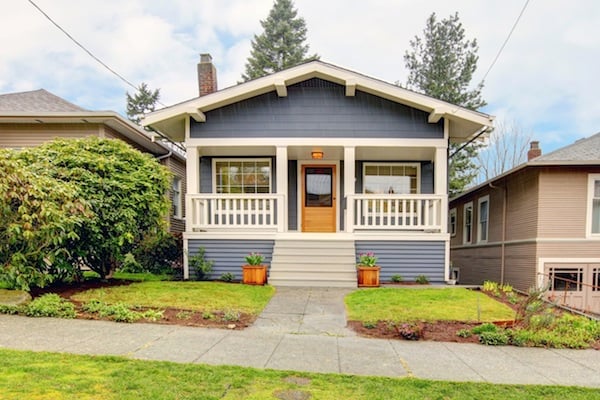When you think about moving out on your own you’re probably thinking about the privacy, independence, and freedom that come with having your own place. You may be fantasizing about the parties you’ll throw or the color you’ll paint your living room, but what should be on your mind is how you are going to afford your own apartment and handle the financial obligations that come with it.
We’ve created this guide to help you figure out how much money to save for renting an apartment and plan your budget for the days following the move out of your parents’ home:
Are you ready?
Moving out is a major life change. That nice listing you saw online for a studio apartment sounds so sweet, and you think you can manage the $700 rent with your $1100 paycheck. But don’t you sign that lease so fast. What about the food? Take away lattes? Bus fare? Laundry? Living on your own means much more to shell for than just the rent. Make sure you’re ready for it by following these three steps:
-
Study the actual cost of moving out and living on your own
Ask friends who’ve already flown the nest, older siblings or your parents and gather as much information as you can. Life has many hidden costs most young people never consider until it’s up to them to foot the bill, like the price of toilet paper and streaming media services. Try to track all your current expenses- even if you’re still receiving financial support from your parents it will help you understand what you’re getting into.
-
Create a budget and stick to it
While you’re still at home you have the privilege of practicing the art of frugal conduct without the looming threat of possible eviction. Now is the time to put your commitment to the test- pay your own way as much as you can, even if your parents are happy to support you. It will teach you discipline and prepare you for what lies ahead.
-
Pay off your debts
It might not be possible to pay off your student loan before you move out (unless you don’t mind moving out at 40), but you can pay some of it back and maybe wipe the slate clean on other loans and any credit card debt you may have accumulated.
Rent
The rule of thumb regarding how much should be spent on rent is basically a division of your monthly income by three, or your annual income by 40. Use this simple rule to establish the maximum amount of money you can afford to pay monthly. Starting your independent life living in an apartment you can’t afford is a big mistake that can snowball into serious trouble. Even if you’re super-confident about your future income, don’t be tempted to rent beyond your means – you can always move to a bigger and better home when your finances allow it.
Security Deposit
Once you’ve figured out your maximum monthly rent, double that. Most security deposits are the same amount as a full month’s rent, and while you will eventually get the money back (provided you keep your place in tip-top shape) it is un-spendable until you move out. You’ll also have to pay an additional charge for a credit and background check. Depending on the management company, that will cost between $30 and $100.
Moving Costs
Moving can cost you anywhere from zero dollars to a few thousand, depending on how much stuff you have and how far you need to transport it.
Full DIY moving is the cheapest alternative. If you have access to a pickup or a truck and some strong-armed friends (who are up for some heavy lifting) you’ll probably end up paying only for the gas and some refreshments for your helping hands.
You can also rent a cheap moving truck and do all the packing and lifting yourself- that would cost you $40-$150, including packing and moving supplies. If you don’t mind a few dings on your furniture, that’s a good and affordable option. A full service moving company is costlier but if you have more than a couple of boxes and some nice furniture that you’d like to remain nice, it could be worth it. A small full-service move within a city should cost between $300 and $600. But how much does it cost to move out of state? Obviously, long distance moving will set you back a bit further with higher gas costs, overnight motel stays, storage in transit expenses and so on. Read this blog post to learn how to plan your moving budget.
Furniture
Since this is your first move, you probably don’t have too much in the way of furniture and household goods. While that makes for a cheaper moving, it also means some additional shopping. Renting a fully or partly furnished apartment may be a good idea- even if the rent is a bit steeper. Furniture prices vary considerably, depending on quality, design, size and so on, but your basic needs can be met without overspending. You also don’t need to get everything in one trip to the store. Take the time to visit thrift stores and garage sales and pick up non-essential items like end tables, mirrors, and lamps over time. Check out this new apartment checklist to learn what you should be on the lookout for.
Utilities
You might have heard of some ongoing payments you need to expect once you’re on your own, aka the bills. Utilities like cable, internet, heat, and electricity can cost you roughly $200 a month. Renter’s insurance, at an average cost of $184 a year, is also highly advisable. It will protect your belongings and the apartment in case of damage by flood, fire and other unwelcome surprises.
Food
One of your primary responsibilities in the world of grown-ups will be to feed yourself. You will need to fit your first kitchen with some basic necessities, and you’ll also be eating out more, at least until your kitchen is ready to be used. Take into account about $150 to stuff your pantry and get some take-out to tide you over. Check out Unpakt’s first apartment grocery list for all the culinary staples you will need to cook up a feast in your new home (or at least avoid death by starvation).
Transportation
Transportation costs are directly affected by the location of your apartment so keep this in mind while hunting for a first home. Monthly costs can run up to a few hundred dollars, depending on where you live and how you get around.
Always Be Prepared
Life is all about surprises. There’s always a flat tire, a broken microwave or a stolen laptop to make your days interesting, especially when you’re on the move. To be on the safe side, put away as much as you can (around $500 would be ideal but no less than $250) for those unpredictable situations
So here’s the bottom line:
- Rent: $1000 (Annual $40K divided by 40)
- Security Deposit: $1000
- Management Fees: $100
- Moving: $40-$450
- Furniture: $500
- Food: $150
- Extras: $250-$500
Which make for a total of $2970 to $3700, depending on your needs.
Good luck!








